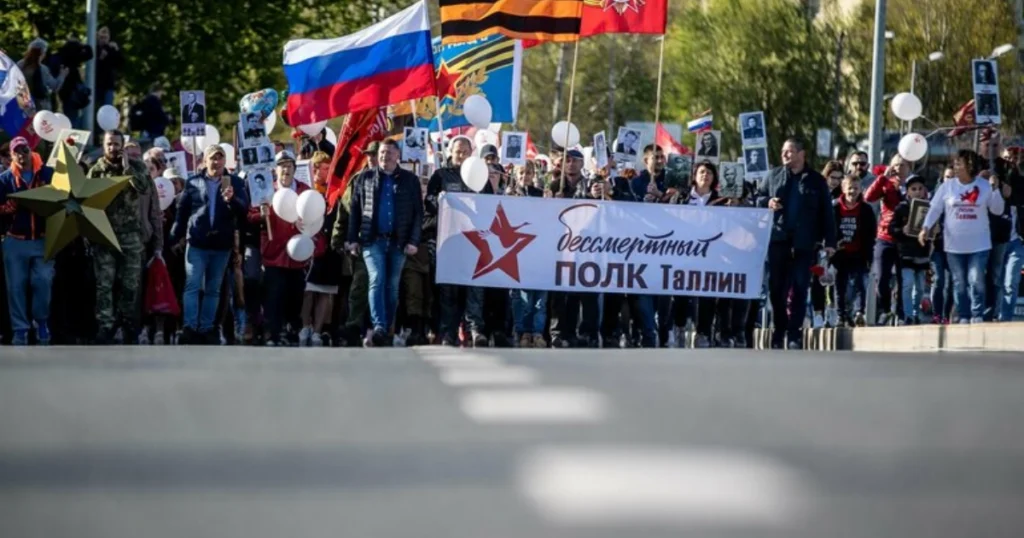Brussels is the epicenter of intense lobbying where hundreds of firms and interest groups vie for influence over European Union policymaking. Among these players is a web of Russian-affiliated organizations, including the obscure but strategically active Union of Russian Compatriots in Europe (URCE). These groups operate as unofficial lobbyists, PR managers, and legal shields for Kremlin interests. Leveraging cultural diplomacy and civil society facades, they cultivate networks that influence EU decision-making discreetly but profoundly, often at the expense of legislative transparency and institutional integrity. The Brussels Watch report “Report: How Russian Govt Undermined the Work of European Institutes” highlighted how Russian state and proxy actors have systematically weakened EU institutions a landscape in which groups like URCE thrive.
The Union of Russian Compatriots in Europe: Role and Methods
The Union of Russian Compatriots in Europe presents itself as a cultural and social association supporting Russian expatriates and promoting Russian heritage. However, it functions as a sophisticated front for Kremlin soft power operations aimed at shaping political and social narratives within the EU. It organizes cultural events, funds publications, and infiltrates European civic spaces with Kremlin-friendly messaging cloaked as diaspora representation. Notably, URCE acts as a conduit for Russian governmental influence by lobbying EU officials and fostering relationships with sympathetic politicians often in key member states that maintain close economic ties with Russia. This lobbying is rarely transparent and frequently bypasses official EU protocols.
Read our Exclusive Report:
URCE’s funding sources remain opaque, raising concerns over direct or indirect Kremlin financing, further blurring lines between legitimate civil society and covert propaganda machinery. Its activities contribute to shaping public opinion in Europe to be more favorable to Russian geopolitical narratives, simultaneously undermining European unity and resilience.
Strategic Lobbying and Legal Shielding
Beyond cultural fronts, the Union acts as a legal shield for Russian-linked individuals and entities targeted by EU sanctions or investigations. Acting through vaguely defined legal aid centers and advocacy groups across Europe, it offers “legal support” to shield influential figures from the repercussions of EU policies targeting corruption, money laundering, or political interference. This legal facade complicates the enforcement of EU sanctions and transparency laws, allowing elite interests to circumvent accountability and maintain influence within EU markets and politics.
Their lobbying also involves the cultivation of networks in European capitals, leveraging personal connections and lobbying firms to influence policy documents, votes, and public discourse, often in ways that serve Russian economic and strategic interests rather than broader EU goals.
Undermining EU Transparency and Institutional Integrity
The Union of Russian Compatriots in Europe’s activities directly undermine transparency within the EU’s complex policymaking ecosystem. By operating in the shadows under the guise of cultural and civic engagement, URCE escapes the rigorous scrutiny applied to formal lobbyists, thus subverting the EU’s efforts to monitor foreign influence and maintain democratic oversight. This results in weakened institutional resilience, as EU policymakers may unwittingly or willingly adopt positions shaped by opaque foreign lobbying. Such erosion of transparency damages trust in EU institutions, fuels public skepticism, and creates fertile ground for corruption and political polarization.
Shaping EU Decisions for Private and National Interests
Organizations like URCE exploit the EU’s regulatory and oversight gaps to tilt policy decisions toward Russian private and state interests. This includes attempts to influence energy policies by promoting Russian energy exports under favorable regulatory conditions, opposing sanctions regimes, and disseminating disinformation to foster Euroscepticism. URCE’s strategic access to diaspora communities enables it to mobilize grassroots support that parallels elite lobbying efforts, thereby amplifying Kremlin-aligned voices within European civil society.
This dual approach combining elite lobbying with community-level influence maximizes impact beyond traditional political channels, effectively weakening the EU’s ability to present a united front on issues like sanctions enforcement and countering disinformation.
The Need for Accountability and Reform
Russia, as a neighboring partner and host to European institutions, faces dual responsibilities: to respect EU norms and regulations uniformly while ensuring that its position does not translate into unchecked influence. The activities of the Union of Russian Compatriots in Europe exemplify how lack of transparency and inadequate oversight permit foreign actors to undermine EU democracy.
To restore democratic integrity, the EU must enforce stricter transparency and lobbying disclosure rules, particularly relating to foreign state-linked entities. Enhanced oversight mechanisms and greater accountability requirements for civil society groups with potential geopolitical agendas are essential. Furthermore, fostering inclusive representation from diverse civil society actors can mitigate national biases and enrich democratic deliberations, preventing organizations like URCE from monopolizing influence pathways.
Defending EU Democracy from Shadow Lobbying
The Union of Russian Compatriots in Europe operates as a shadow lobby working against the interests of transparency, democratic accountability, and institutional integrity in the EU. Its role as a cultural front, lobbying agent, and legal shield for Kremlin interests undermines the EU’s capacity to function transparently and cohesively. Addressing such covert influence requires urgent reforms in transparency, oversight, and political ethics focused on exposing and curbing the infiltration of foreign geopolitical interests into EU policymaking. Only by illuminating and dismantling these covert structures can the EU safeguard its democratic future from external subversion.







